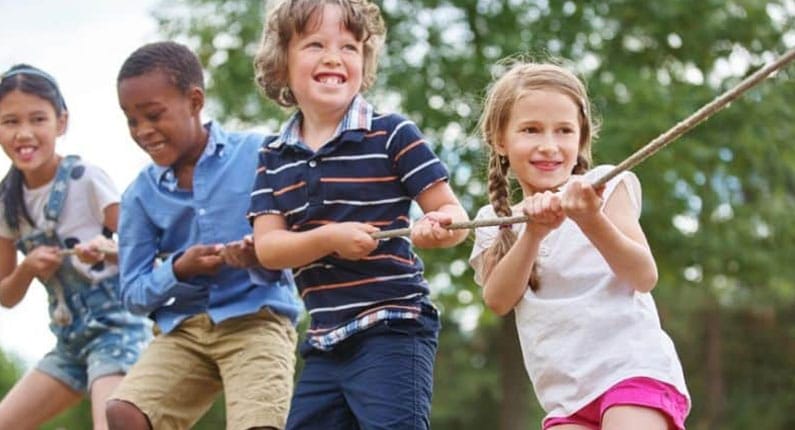Helping your child to develop good social skills is one of the most important things you can do as a parent. Research shows that children who have strong social skills make friends more easily and are better equipped to deal with setbacks and stressful situations.
A young person’s social skills can also act as a predictor for their future success. A study by Pennsylvania State University and Duke University in the United States found that youngsters with highly developed social skills were more likely to gain an undergraduate degree.
When children learn social skills from a young age, these lay the foundation they need to navigate everyday interactions, form positive relationships and manage their emotions.
1. Sharing
Sharing not only teaches children about compromise and fairness but it also empowers them to learn negotiation skills and how to be patient. Research shows that youngsters with high self-esteem are more likely to want to share toys or snacks with other children.
A willingness to share helps children to establish and maintain healthy friendships, and has been linked to positive well-being. It is one of the most important things we can teach our children and gives them a sense of compassion and generosity that will remain them throughout their lives.
2. Listening
You are probably all familiar with the saying “We have one mouth and two ears so that we can listen twice as much as we speak”. However, listening isn’t just about staying quiet – being a good listener means really absorbing what the other person is saying.
Developing their listening skills will benefit children both socially and academically. In today’s age of digital devices, the ability to fully concentrate on a conversation without being distracted by smartphones, is becoming increasingly rare among both children and adults.
3. Body Language
From standing up straight to respecting other people’s personal space, our body language is an essential part of communication. Some children struggle to make eye contact or forget to smile when they are talking to other people. This can give the impression that they are rude or unfriendly when the reality is most likely shyness or a lack of confidence. As parents you can help your child build good habits by modelling the body language you would like them to adopt and giving praise when they get it right.
4. Manners
The earlier children start practicing good manners, the quicker these become second nature. Children who are taught about respect and kindness are more confident in speaking and interacting with adults or other children.
Saying ‘please’ and ‘thank you’ will go a long way toward helping your child stand out for the right reasons. Good table manners are also essential if you want your child to make the best possible impression when dining with others, either at a restaurant or at a friend’s house.
5. Co-operation
“Team work makes the dream work” and good co-operation skills will empower your child to work with others to achieve a common goal. Co-operation is important not only in the classroom but also in the playground and on the sports field. Children who contribute and participate without trying to control the situation learn to respect other people’s needs and opinions.
In adulthood, these skills will benefit them in the workplace where co-operation is essential to foster communication, productivity and efficiency. Co-operation also strengthens relationships by enabling partners to work out issues in a way that is mutually beneficial.
All of these social skills for children are covered in our Kidiquette etiquette classes. These courses are aimed at 6 to 11-year-olds and will equip children with the social confidence, communication skills and emotional resilience that they need to thrive in childhood and beyond.






